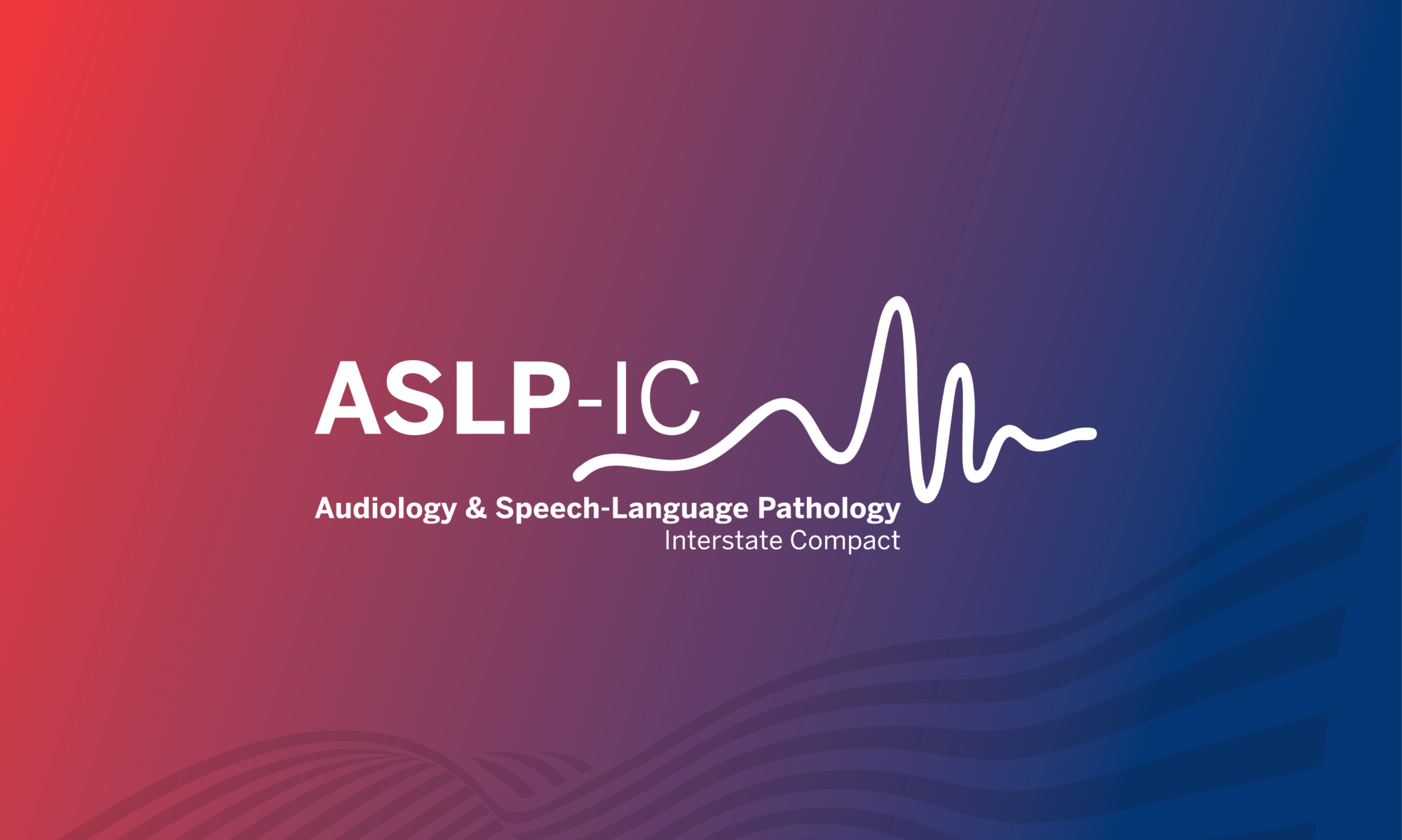Frequently Asked Questions
Compact Introductory Information
The Audiology and Speech-Language Pathology Interstate Compact (ASLP-IC) is an interstate agreement that provides a pathway by which audiologists and speech-language pathologists can obtain the authorization to practice in states where they do not hold a license. To join the compact, a state must enact the compact model legislation via its legislative process.
Practitioners can use their home state professional license to apply for a compact privilege to practice in other participating states.
It is a license granted by your home state, i.e., where you live, pay taxes and have your driver’s license. This is the license you will use to apply for compact privileges in other participating states once applications become available.
A privilege to practice, or compact privilege, is granted via the compact commission. It is based on a practitioner’s home state license and gives a practitioner the authorization to practice in other compact member states.
To qualify, a practitioner’s home state must be a compact member.
The practitioner must have:
- An active, unencumbered license in their home state.
- Earned an accredited degree according to Section 3E and 3F of the compact.
- Completed a supervised practicum and approved national examination.
- Completed a supervised post graduate professional experience (applicable to speech-language pathologists only).
- No disqualifying criminal history.
- A valid Social Security Number or National Practitioner Identifier.
As of September 2022, the compact has been enacted in 23 states (Alabama, Colorado, Delaware, Georgia, Idaho, Indiana, Iowa, Kansas, Kentucky, Louisiana, Maryland, Mississippi, Missouri, Nebraska, New Hampshire, North Carolina, Ohio, Oklahoma, South Carolina, Tennessee, Utah, West Virginia and Wyoming).
For more details and the most up-to-date information, see the map here: https://aslpcompact.com/compact-map/. If your state has not yet introduced the compact, that is the first step. See below for more information.
No. Although your state enacting the compact is a necessary step, it does not automatically approve your license for use in other participating states. Practitioners must apply for the privilege to practice in each state through the compact.
Applications for compact privileges are expected to be available in 2023. There will be a link to the application available on this website.
Unfortunately, your home state must be a member of the compact before you can participate.
Legislative Questions
States can become members of the compact by enacting the compact model legislation through the state’s legislature and governor.
Because the legislative process is unpredictable, it is impossible to guarantee model compact legislation will be introduced or enacted in a particular state. When bills are introduced or enacted, the website map is updated promptly, so interested individuals may refer to that page for up-to-date information.
If you would like to get involved in your state, please contact your state legislators, the state chapter of your national membership organization or your state licensing board. You can also join the compact mailing list (see below) for occasional updates on the compact’s progress.
Accessing the Compact Privilege To Practice
We anticipate making applications for compact privileges available in late 2023 or early 2024. Information will be posted on this website as it becomes available.
Practitioners only need to complete continuing education requirements in their home state. They do not need to complete units for other states where they hold compact privileges.
Practitioners will need to complete jurisprudence examinations in each state where they are required as part of their compact privilege application for that state.
The cost of a compact privilege is set by each state. Once states are ready to issue privileges, more information will be available.
Additional Licensing Concerns
No. You must have your home state professional license to apply for a compact privilege to practice in other participating states.
If a state Department of Education does not require a separate credential to practice in the school system, you can do so through the compact privilege to practice.
If a state Department of Education requires a separate credential to practice in the school system, you must obtain that credential to practice in schools.
If a state does not require a separate credential to dispense hearing aids, audiologists can do so through the compact privilege to practice.
If a state requires a separate credential to dispense hearing aids, audiologists must obtain that credential to dispense hearing aids.
Professionals practicing through the compact must have a license to practice independently. If your role requires supervision (such as a clinical fellowship), you are not eligible to practice through the compact.
You are able to participate in the compact if you received a license under previous licensing requirements. The licensing requirements in the compact ensure all member states have the same requirements for individuals entering the profession.
Interested individuals can join the compact mailing list for occasional updates on the compact’s progress here.
You can reach out through this website’s contact form, which you can find on this page.
